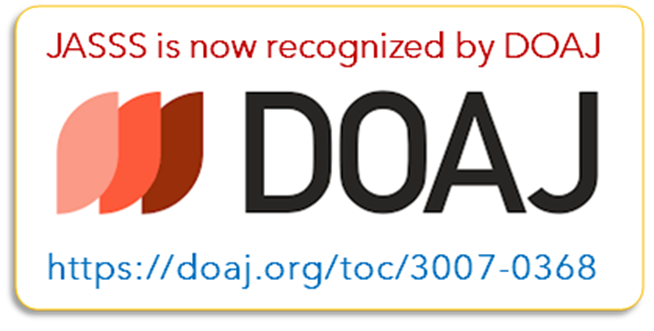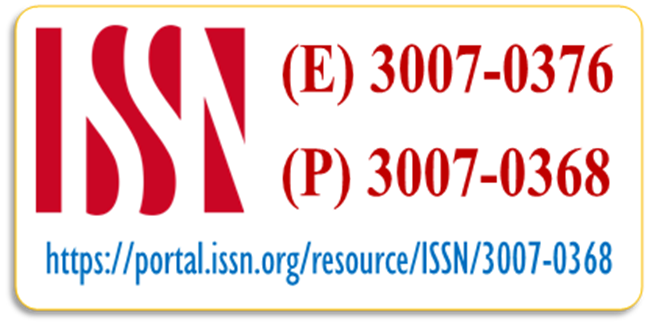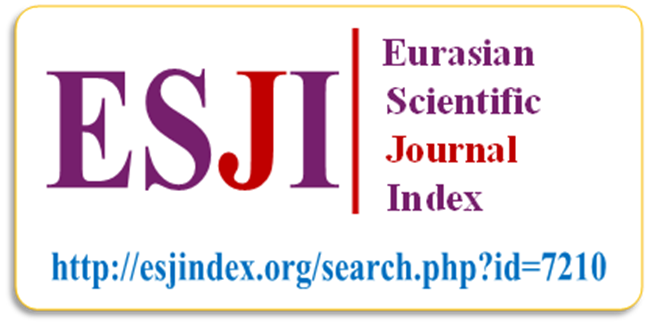Adaption of Transformative Education to Respect and Incorporate Cultural Diversity in South African Classrooms Through Inclusive Pedagogy
DOI:
https://doi.org/10.5281/zenodo.17068979Keywords:
Transformative, Education, Cultural Diversity, Classrooms and Inclusive PedagogyAbstract
This study investigates the adaptation of transformative education to respect and incorporate cultural diversity in South African classrooms through inclusive pedagogy. The research utilized a descriptive survey design, focusing on 300 secondary school teachers in Eastern Cape, South Africa. The sample was selected using multistage sampling techniques: 10 schools were randomly chosen, and 30 teachers from each school were selected. Data was collected through a Questionnaire on Transformative Education and Cultural Diversity in South African Classrooms (QTECDSAC), which explored teachers' practices in integrating cultural diversity, the challenges of implementing transformative education, the effectiveness of such practices, professional development needs, and the impact of inclusive pedagogy on student outcomes. The instrument was validated, and its reliability (Cronbach’s alpha = 0.83) confirmed its suitability for the study. Descriptive statistics (frequency counts, means, standard deviations, and percentages) were used to analyze the data. The findings revealed that culturally relevant teaching materials were the most commonly used practices for integrating cultural diversity, though there was considerable variation in the extent of integration. Key challenges included inadequate training in culturally responsive pedagogy and insufficient teaching resources. While transformative education was viewed as moderately effective in promoting student engagement and belonging, teachers identified workshops and multilingual classroom management training as the most beneficial strategies for adopting inclusive pedagogy. The use of inclusive pedagogy was found to positively impact students’ intercultural understanding, critical thinking, and academic performance. Recommendations include expanding teacher training on culturally responsive pedagogy, providing adequate resources, focusing on multilingual classroom management, and fostering student-centered approaches to improve intercultural understanding and academic success. Regular monitoring and evaluation of transformative practices are crucial for ensuring their effectiveness.
Downloads
References
Adewusi, A. G. (2020). The contemporary state of education in South Africa. In The education systems of Africa: Global education systems (pp. 1-16). Springer International Publishing. https://doi.org/10.1007/978-3-030-43042-9_20-1
Banks, J. A., & Banks, C. A. M. (Eds.) (2019). Multicultural Education: Issues and Perspectives. John Wiley & Sons.
Caingcoy, M. E. (2023). Culturally responsive pedagogy: A systematic overview / Pedagogia culturalmente responsiva: Uma visão sistemática. Diversitas Journal, 8(4), 3203-3212. https://diversitasjournal.com.br/diversitas_journal
Chang, W.-C., & Viesca, K. (2022). Preparing teachers for culturally responsive/relevant pedagogy (CRP): A critical review of research. Faculty Publications: Department of Teaching, Learning, and Teacher Education, University of Nebraska - Lincoln. DigitalComm ons@University of Nebraska - Lincoln.
Change Kids Lives (2019). Culturally Responsive Teaching: 5 Essential Resources. http://www.changekid slives.org/lists-culturally-responsive-teaching.
Darling-Hammond, L., Flook, L., Cook-Harvey, C., Barron, B., & Osher, D. (2019). Implications for educational practice of the science of learning and development. Applied Developmental Science, 24(2), 97-140. https://doi.org/10.1080/10888691.2018.1537791
de Klerk, D., Krull, G., Maleswena, T., & MacAlister, F. (2024). Reimagining South African higher education: Towards a student-centred learning and teaching future. https://doi.org/10.5277 9/9781991260468
Dee, T. S., & Penner, E. K. (2017). The causal effects of cultural relevance: Evidence from an ethnic studies curriculum. American Educational Research Journal, 54(1), 127-166. https://doi.org/10.310 2/0002831216677002.
Dewia, E. R., & Alam, A. A. (2020). Transformation Model for Character Education of Students. Cypriot Journal of Educational Sciences, 15, 1228-1237. https://www.un-pub.eu/ojs/index.p hp/cjes/arti cle/ view/5155.
Flores, O. J. (2018). (Re)Constructing the Language of the Achievement Gap to an Opportunity Gap: The Counternarratives of Three African American Women School Leaders. Journal of School Leadership, 28, 344-373. https://doi.org/10.1177/105268461802800304.
Florian, L and Beaton, MC (2018) Inclusive pedagogy in action: getting it right for every child. International Journal of Inclusive Education, 22(8). 870-884. ISSN 1360-3116 DOI: https://doi.org/10.1080/13603116.2017.1412513
García, O., & Wei, L. (2014). Translanguaging: Language, bilingualism and education. Palgrave Macmillan.
Gay, G. (2018). Culturally responsive teaching: Theory, research, and practice (3rd ed.). Teachers’ College Press.
Heugh, K. A. (2013). Multilingual education policy in South Africa constrained by theoretical and historical disconnections. Annual Review of Applied Linguistics, 33, 1-21. https://doi.org/10.1017/S0267190513000135.
Jama, P., & Lunga, P. (2024). A collaborative approach to enhance quality education in Foundation Phase inclusive classes in South Africa. African Journal of Teacher Education, 13(2), 187–211. https://doi.org/10.21083/ajote.v13i2.7549
Ladson-Billings, G. (2014). Culturally Relevant Pedagogy 2.0: A.K.A. the Remix. Harvard Educational Review, 84, 74-84. https://doi.org/10.17763/haer.84.1.p2rj131485484751.
Lim, L. , Tan, M. , & Saito, E. (2019). Culturally relevant pedagogy: Developing principles of description and analysis. Teaching and Teacher Education, 77(1), 43–52. 10.1016/j.tate.2018.09.011.
Mezirow, J. (2000). Learning as transformation: Critical perspectives on a theory in progress. Jossey-Bass.
Mezirow, J. (2002). Transformative learning: Theory to practice. New Directions for Adult and Continuing Education, 1997(74), 5-12. https://doi.org/10.1002/ace.7401
Mpisi, A., & Alexander, G. (2022). Culturally responsive teaching: A bridge over the diversity divide in historically white multicultural schools of South Africa. Universal Journal of Educational Research, 10(4), 177-185. https://doi.org/10.13189/ujer.2022.100404
Mpu, Y., & Adu, E. (2021). The challenges of inclusive education and its implementation in schools: The South African perspective. Perspectives in Education, 39(2), 225-238. https://doi.org/10.18820/2519593X/pie.v39.i2.16
Sarangapani, P.M. (2021). A Cultural View of Teachers, Pedagogy, and Teacher Education. In: Sarangapani, P.M., Pappu, R. (eds) Handbook of Education Systems in South Asia. Global Education Systems. Springer, Singapore. https://doi.org/10.1007/978-981-13-3309-5_27-3
Souto-Manning, M. (2019). Toward practically-just transformations: Interrupting racism in teacher education. Journal of Education for Teaching, 45(1), 97–113. https://doi.org/ 10.10 80/02607476.2019.1571275
Vavrus, M. (2023). James Banks: Preeminent scholar of multicultural civic education. In Multicultural education: A critical reader (pp. 123-1). Springer. https://doi.org/10.1007/978-3-030-81037-5_123-1
Zion, S. (2020). Transformative student voice: Extending the role of youth in addressing systemic marginalization in U.S. schools. Multiple Voices for Ethnically Diverse Exceptional Leaners, 20(1), 32-43. https://meridian.a llenpress.com/mved el/articleabstract20/1/32/441035/Transformative-Student-Voice-Extending-the-Roleof?redirectedFrom=PDF








